Landshapes: designing with AI to evoke climate fascination
The speculative worlds depicted in LANDSHAPES are constantly changing, with the moving landscapes showing our world as an ever-changing entity. It encourages the viewer to view our climate as nothing to be afraid of, but something beautiful worth preserving. This change in mindset can be a strong motivator for people to actively reengage with the topic of climate change.
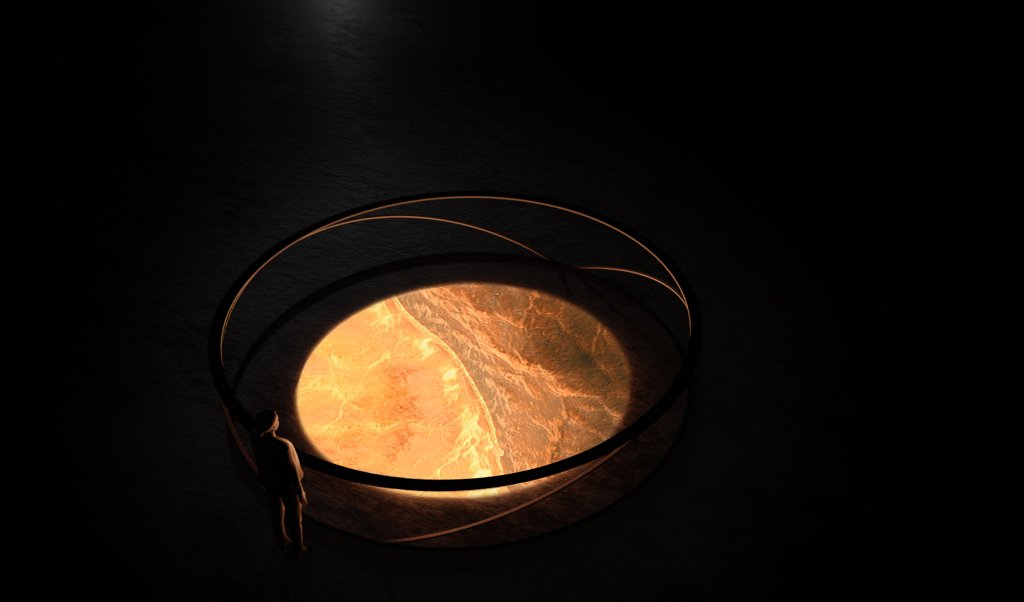
Our world climate is an incredibly complex and ever-changing system. The reality of climate change and the consequential pressure to act fast to reduce greenhouse gas emissions requires immediate attention. It is an emotional topic, often driven by negative emotions such as anger and fear. And yet, despite this unprecedented urgency, there is a lack of active public engagement needed to motivate meaningful change.
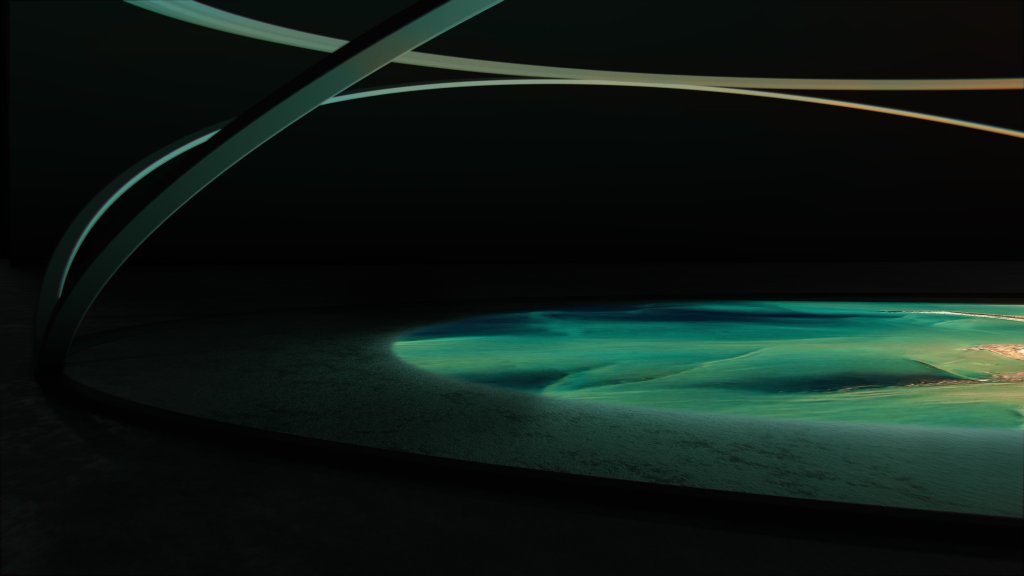
LANDSHAPES is an installation featuring a circular projection of AI-generated aerial landscapes – images that look real, yet have never been seen by anyone before. It enables participants to become absorbed in the morphing landscapes and experience a changing climate in an open-ended manner. Instead of utilising fear or trying to offer an immediate product solution, the installation intends to spark fascination, offers a place to find wonder, and allows the viewer to dream of a positive future again.
The underlying AI network, trained on thousands of high-resolution satellite images from all around the world, functions as a neutral mediator of the experience. With the potential to depict any possible landscape, it is not the designer who imposes a vision of a speculative future; the creation is the result of a collaboration between the machine and the visitor’s imagination.
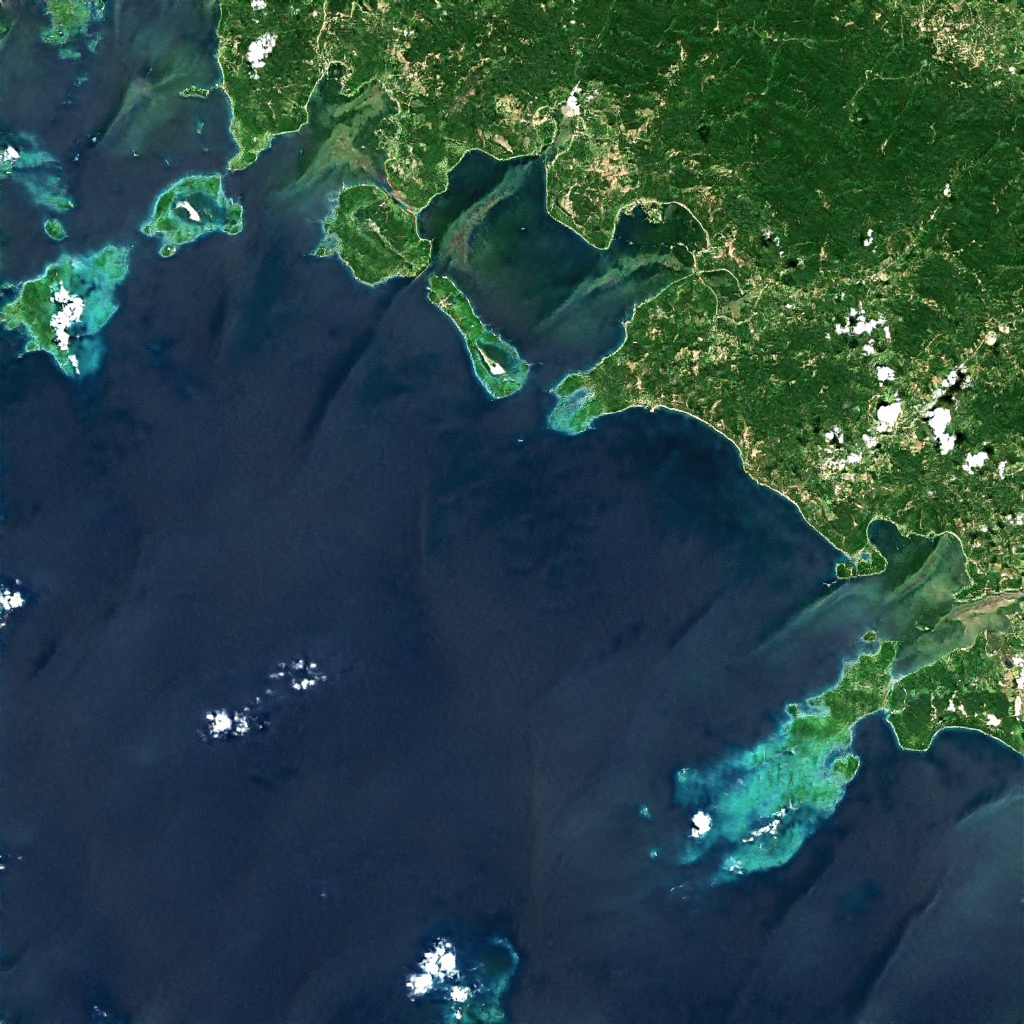
The use of Generative Adversarial Networks (GANs) – a subset of artificial intelligence (AI) – to motivate public engagement through the emotion of fascination and element of play was first explored in 2020/2021 by Frederik Ueberschär under the supervision of Derek Lomas and Alessandro Bozzon in the scope of his Master’s thesis at the faculty of Industrial Design Engineering at Delft University of Technology.
The project showcases a change in the practice of design, using automation rather than manual craft, and the need for a change of mindset to engage with the topic of climate change. Instead of building on fear and anger to stir public attention, LANDSHAPE presents our climate as a fascinating system that is worth exploring.
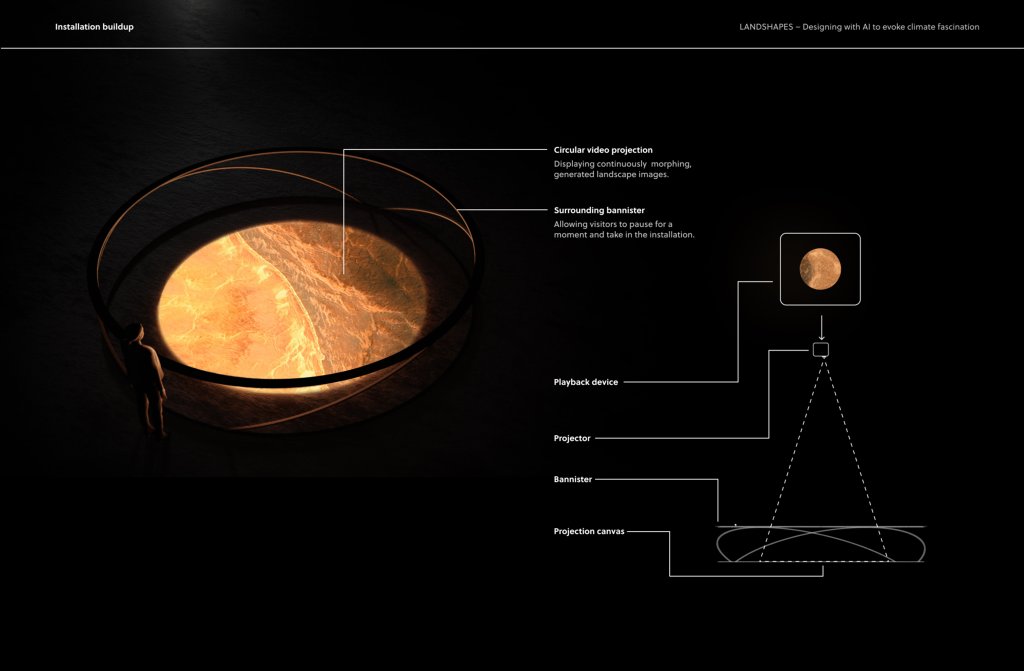
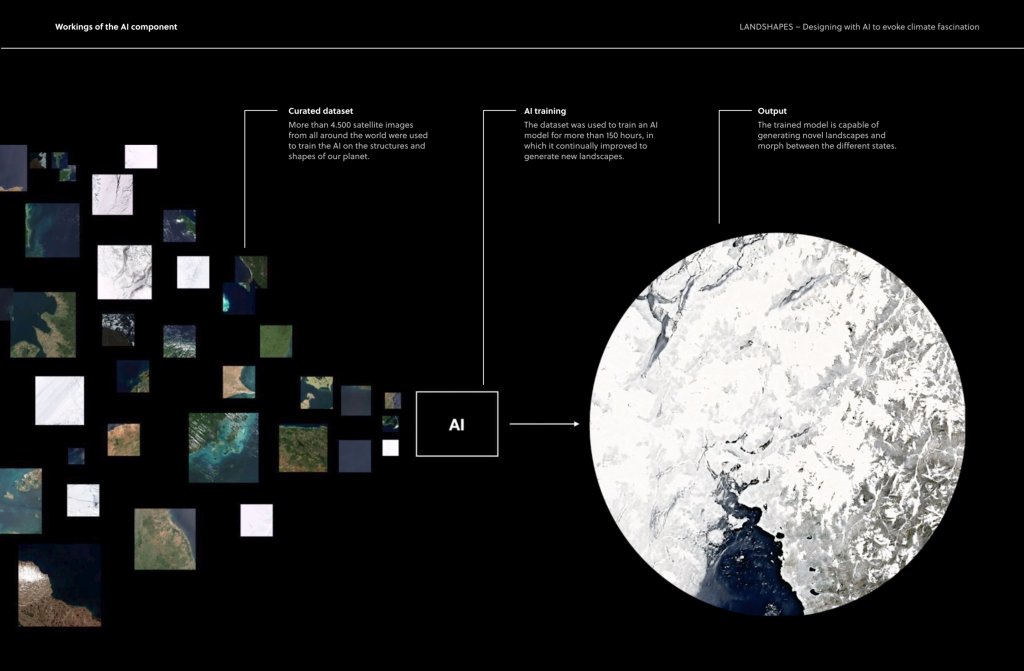
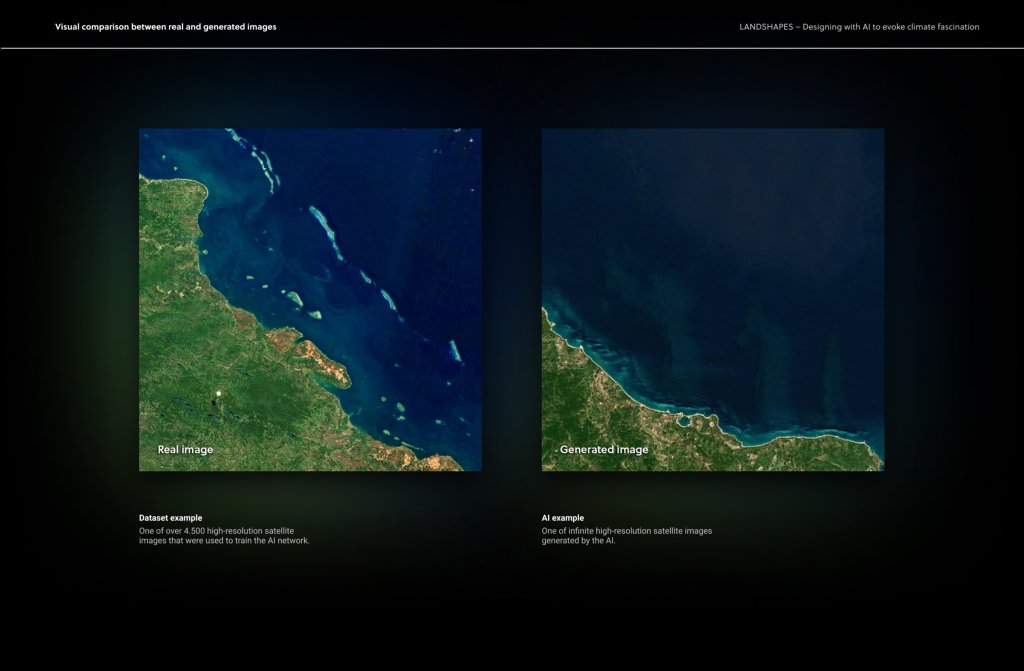
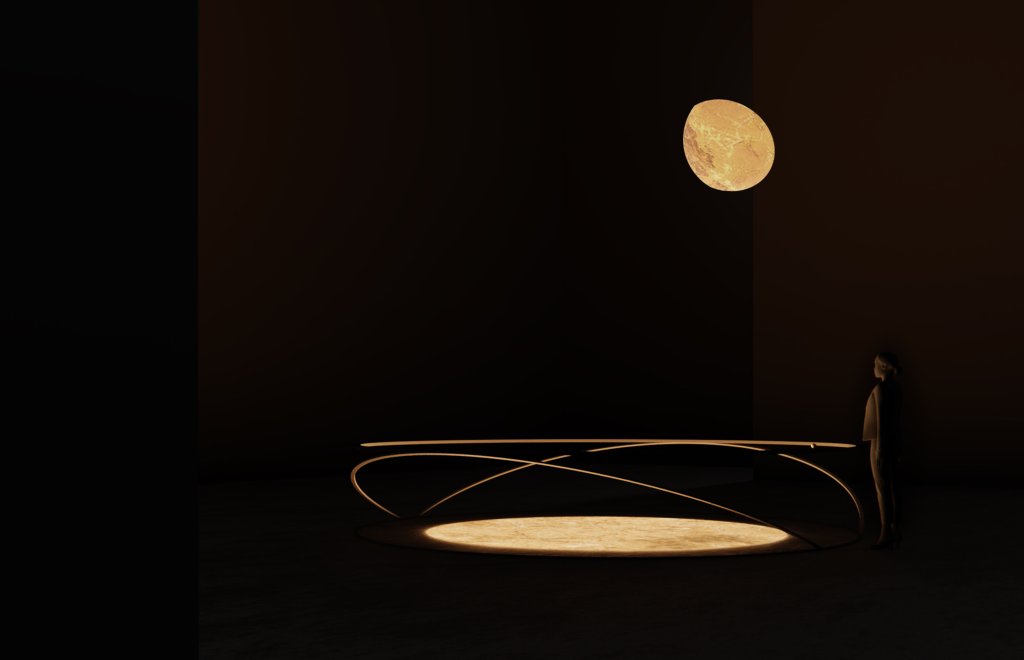
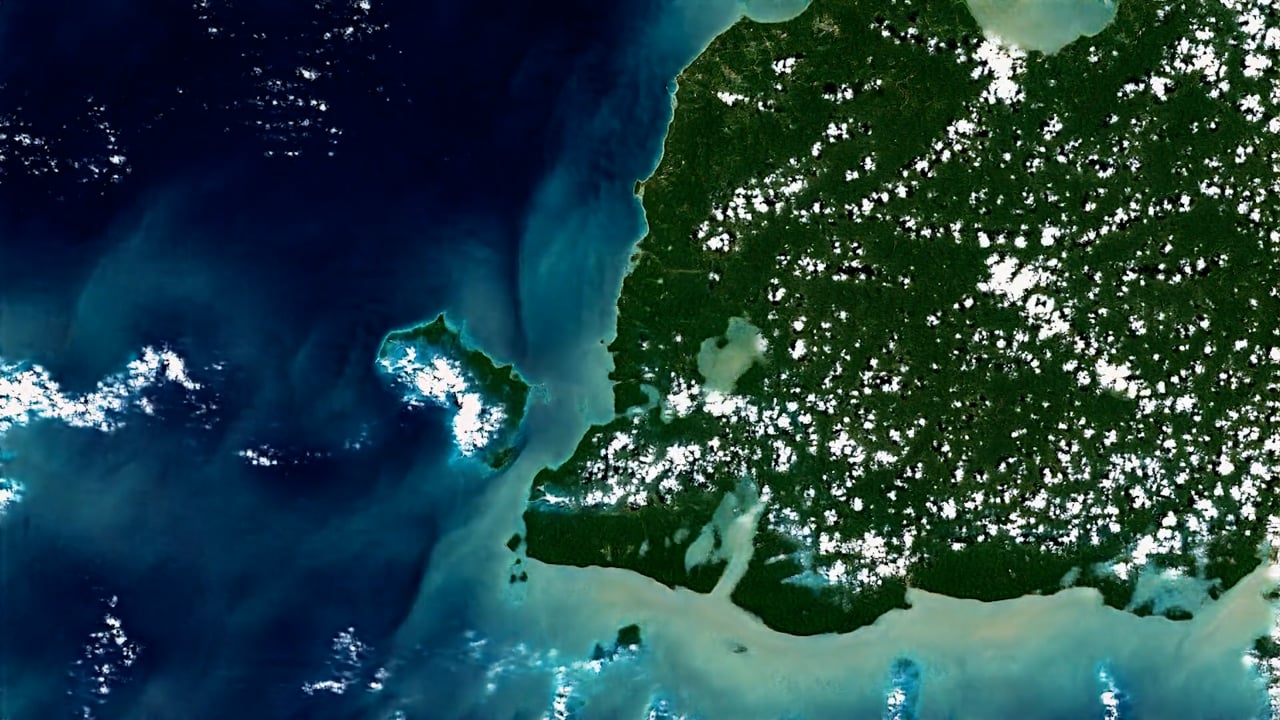
Share
Contacts
- -Frederik Ueberschär
- -Derek Lomas – Project Chair
- -Alessandro Bozzon – Project Mentor



